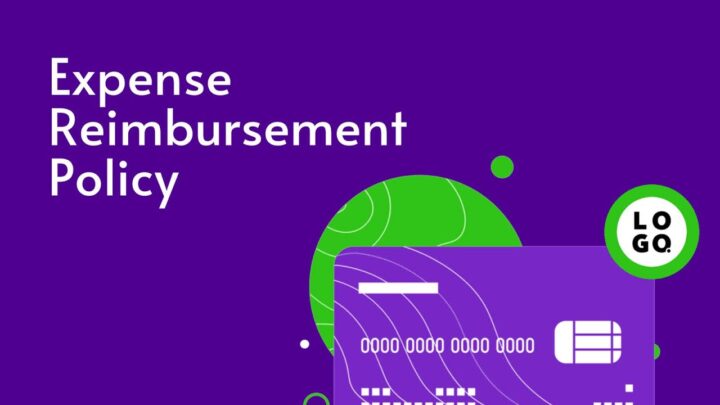The Benefits and Drawbacks of Virtual Support in Online Mental Health

Virtual support has become increasingly popular for individuals seeking mental health services. Telehealth counseling and treatment programs have become more widely available and have been shown to provide mental health support effectively.
According to Modern Recovery a top online mental health program in the U.S. there are advantages and drawbacks to telehealth for mental health. Here’s what they wrote.
What are the advantages of virtual support for mental health?

- Convenient access: virtual support allows for easy access to mental health services from anywhere with an internet connection.
- Increased privacy: virtual support eliminates the need for face-to-face interactions, which can be beneficial for those who may feel uncomfortable discussing their mental health in a person.
- Flexibility: virtual support can be more flexible in terms of scheduling appointments and availability of support.
- Reduced stigma: virtual support can reduce the stigma associated with seeking mental health support, as it allows anonymity and discretion.
- Cost-effective: virtual support is often more affordable than in-person support, as it eliminates the need for travel and other costs associated with in-person appointments.
What are the drawbacks of virtual support for mental health?

- Lack of physical interaction: virtual support eliminates the potential benefits of physical touch and human connection.
- Technical difficulties: virtual support may be hindered by technical difficulties such as poor internet connection or malfunctions of virtual platforms.
- Limited ability to assess nonverbal cues: virtual support makes it more challenging to assess the emotional state and nonverbal cues of the person seeking support.
- Limited access: not everyone has access to technology or the internet, which can limit the availability of virtual support to certain populations.
- Privacy concerns: virtual support may raise concerns about privacy and the security of personal information, as sensitive information may be transmitted over the internet.
Another essential aspect of virtual support is the need for a strong therapeutic alliance between the patient and therapist. The therapeutic alliance is the relationship between a therapist and patient, and it is a crucial element in the success of therapy. Both the patient and therapist must work on building this alliance to ensure the best outcome.
Another drawback of virtual support is the lack of non-verbal cues. In-person therapy allows for the therapist to observe the patient’s body language, which can provide important information about their emotional state. This information is unavailable in virtual support and may limit the therapist’s understanding of the patient’s emotional state.
How do insurance and reimbursement policies impact the availability and use of virtual support for mental health?

Insurance and reimbursement policies play a crucial role in the availability and use of virtual support for mental health. In many countries, insurance companies are required to cover mental health services, but the specific coverage may vary widely depending on the individual’s insurance plan. Some insurance plans may provide full coverage for virtual therapy, while others may only cover a portion of the cost or require a higher deductible.
Insurance coverage can greatly impact the availability and use of virtual support for mental health, as individuals who cannot afford to pay out-of-pocket for virtual therapy may not seek out the support they need. Additionally, insurance companies may limit the number of virtual therapy sessions that are covered, which can impact the quality and duration of treatment for patients.
Reimbursement policies also impact the availability and use of virtual support for mental health. In some cases, mental health professionals may not be reimbursed for virtual therapy sessions at the same rate as in-person therapy sessions. This can limit the number of mental health professionals who are willing to provide virtual therapy, as well as impact the cost of virtual therapy for patients.
Online mental health resources may be a good option for anyone looking for mental health treatments. Weighing the potential benefits and drawbacks is essential before deciding whether virtual support is the best choice for you.
You must consult a mental health professional to determine whether virtual help is appropriate for your needs. They can help you choose the advantages and disadvantages of online therapy or counseling.
How does virtual support impact the therapist-patient relationship?

The relationship between the therapist and patient may be impacted both favorably and unfavorably by virtual support. Virtual support can help people access mental health services more easily by removing obstacles to therapy like distance and scheduling conflicts. This is one of its main benefits. Additionally, for people who are worried about stigma, virtual support can offer more privacy and anonymity, which can foster a more relaxed and open environment for therapy.
Virtual assistance, however, can also pose difficulties for the therapist-patient relationship. Virtual therapy is frequently criticized for lacking the closeness and intimacy of in-person therapy. It may be more challenging for therapists to fully comprehend and connect with their patients when there aren’t any nonverbal cues present, such as facial expressions and body language. In virtual therapy, there is less face-to-face interaction, which can make it more challenging for therapists to build rapport and trust with their patients.
What are the online resources for mental health?

- Online therapy platforms: Offer virtual therapy sessions with licensed mental health professionals through video, phone or text messaging.
- Mental health support groups: Online forums or groups where individuals can connect with others who are dealing with similar mental health challenges.
- Mental health tracking apps: Apps that allow individuals to track symptoms, moods, and behaviors related to their mental health.
- Self-help websites: Websites that provide educational resources, coping strategies, and guidance for managing mental health.
- Psychological tests and assessments: Online assessments help individuals understand their mental health status and identify potential disorders.
- Mindfulness and meditation apps: Apps that provide guided meditations and mindfulness exercises for mental health and well-being.
- Virtual support communities: Social media platforms, online forums, and chat rooms where individuals can connect with others for support and encouragement.
- Online crisis hotlines: Websites and phone numbers that offer 24/7 support for individuals in crisis.
- Virtual self-care resources: Websites and apps that offer tips and resources for self-care, stress management, and relaxation.
Virtual support in online mental health can be a valuable option for many individuals seeking mental health services. It offers accessibility and anonymity and can effectively treat specific mental health conditions. However, it is crucial to consider the potential drawbacks, such as lack of personal interaction, technical difficulties, and the need for a strong therapeutic alliance. Additionally, it may not be covered by insurance. It is recommended to consult with a mental health professional to determine if virtual support is appropriate for your individual needs and weigh the pros and cons before making a decision.
How effective is virtual support in treating mental health conditions?

Virtual support for mental health has been rapidly growing in popularity in recent years, as advances in technology have made it possible for individuals to access mental health services from the comfort of their own homes. Online therapy platforms, mental health support groups, and mental health tracking apps are just a few examples of the many virtual resources now available to individuals seeking help for mental health conditions. While virtual support has the potential to greatly increase access to mental health services, the question remains: how effective is it in treating mental health conditions?
One of the main advantages of virtual support is convenience. Virtual support can be accessed from anywhere and at any time, without the need for travel or scheduling appointments. This can be especially beneficial for individuals who live in remote areas or have mobility issues that make it difficult to access in-person therapy. Additionally, virtual support can be a more accessible option for individuals who are concerned about stigma or privacy, as it offers greater anonymity compared to in-person therapy.
However, the effectiveness of virtual support for treating mental health conditions depends on several factors, including the quality of the virtual support itself and the specific needs and preferences of the individual seeking help. Virtual support can be effective for treating a wide range of mental health conditions, including anxiety, depression, and stress-related disorders. However, the quality of virtual support can vary greatly, and it is important to seek out reputable and well-established virtual resources that are staffed by licensed mental health professionals.
